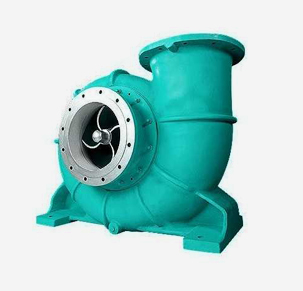Macedonian
- Afrikaans
- Albanian
- Amharic
- Arabic
- Armenian
- Azerbaijani
- Basque
- Belarusian
- Bengali
- Bosnian
- Bulgarian
- Catalan
- Cebuano
- Corsican
- Croatian
- Czech
- Danish
- Dutch
- English
- Esperanto
- Estonian
- Finnish
- French
- Frisian
- Galician
- Georgian
- German
- Greek
- Gujarati
- Haitian Creole
- hausa
- hawaiian
- Hebrew
- Hindi
- Miao
- Hungarian
- Icelandic
- igbo
- Indonesian
- irish
- Italian
- Japanese
- Javanese
- Kannada
- kazakh
- Khmer
- Rwandese
- Korean
- Kurdish
- Kyrgyz
- Lao
- Latin
- Latvian
- Lithuanian
- Luxembourgish
- Macedonian
- Malgashi
- Malay
- Malayalam
- Maltese
- Maori
- Marathi
- Mongolian
- Myanmar
- Nepali
- Norwegian
- Norwegian
- Occitan
- Pashto
- Persian
- Polish
- Portuguese
- Punjabi
- Romanian
- Russian
- Samoan
- Scottish Gaelic
- Serbian
- Sesotho
- Shona
- Sindhi
- Sinhala
- Slovak
- Slovenian
- Somali
- Spanish
- Sundanese
- Swahili
- Swedish
- Tagalog
- Tajik
- Tamil
- Tatar
- Telugu
- Thai
- Turkish
- Turkmen
- Ukrainian
- Urdu
- Uighur
- Uzbek
- Vietnamese
- Welsh
- Bantu
- Yiddish
- Yoruba
- Zulu
Telephone: +86 13120555503
Email: frank@cypump.com
Сеп . 21, 2024 10:45 Back to list
'exploring the benefits and applications of slurry pump ...'
Exploring the Benefits and Applications of Slurry Pumps
Slurry pumps are pivotal in various industrial applications, primarily designed to transport mixtures of liquid and solid particles. Due to their robust construction and specialized design, these pumps are ideal for handling materials that would prove challenging for standard pumps. This article delves into the numerous benefits and applications of slurry pumps, highlighting their significance in different industries.
Understanding Slurry Pumps
Slurry pumps, unlike conventional pumps, are designed to manage viscous fluids containing suspended solids. They are equipped with features that enable them to handle the erosive and abrasive nature of slurries, which often include a range of materials such as sand, coal, gravel, and industrial waste. These pumps are engineered to withstand high pressures and corrosive environments, ensuring durability and reliability under strenuous conditions.
Key Benefits of Slurry Pumps
1. Robust Construction One of the primary advantages of slurry pumps is their robust design. They are constructed from hard materials such as cast iron or high-chrome alloys, which provide the necessary strength to withstand abrasion. This makes them suitable for handling highly abrasive slurries without significant wear over time.
2. High Efficiency Slurry pumps are designed to maintain high efficiency when moving heavy mixtures. Their impellers and volutes are optimized to ensure that the energy consumed during operation is minimized while maximizing the flow rate of the slurry.
3. Customization Slurry pumps can be customized to meet specific application requirements. This includes altering the pump size, type of seals, and materials used in construction. Such customization allows industries to optimize their operations based on the nature of the slurry they handle.
4. Versatility These pumps are versatile and can be used in a wide range of industries, including mining, chemical processing, wastewater treatment, and construction. They effectively manage the transportation of slurries, making them an essential component in many industrial processes.
'exploring the benefits and applications of slurry pump ...'

5. Reduced Maintenance With fewer moving parts and robust design, slurry pumps require less maintenance compared to traditional pumps. This leads to lower operational costs and increased uptime, which is critical for industries relying on continuous processes.
Applications of Slurry Pumps
1. Mining Industry In mining operations, slurry pumps are crucial for transporting slurries loaded with minerals and ores. They facilitate the separation of valuable materials from waste, enhancing the overall efficiency of mining operations.
2. Wastewater Treatment Slurry pumps are extensively used in wastewater treatment facilities to move sludge and other solids. Their ability to handle concentrated solids ensures effective treatment while maintaining flow rates.
3. Construction In construction, these pumps manage concrete and other heavy materials, making it easier to pour and transport mixtures smoothly and efficiently.
4. Chemical Processing Slurry pumps are vital in chemical processing where corrosive and abrasive slurries are common. Their design ensures safety and functionality in handling hazardous materials.
Conclusion
Slurry pumps play an indispensable role in various industries by providing solutions for transporting heavy mixtures safely and efficiently. Their robust design, high efficiency, and versatility make them an ideal choice for applications where traditional pumps would struggle. As industries continue to evolve, the usage and development of slurry pumps will undoubtedly expand, further enhancing productivity and operational effectiveness in diverse environments.
-
ISG Series Vertical Pipeline Pump - Chi Yuan Pumps Co., LTD.|High Efficiency, Energy Saving, Low Noise
NewsJul.30,2025
-
ISG Series Vertical Pipeline Pump- Chi Yuan Pumps|High Efficiency&Low Noise
NewsJul.30,2025
-
ISG Series Vertical Pipeline Pump-Chi Yuan Pumps Co., LTD.|High Efficiency&Energy Conservation
NewsJul.30,2025
-
ISG Series Vertical Pipeline Pump - Chi Yuan Pumps Co., LTD.|Advanced Hydraulic Design&Energy-Efficient Solutions
NewsJul.30,2025
-
ISG Series Vertical Pipeline Pump - Chi Yuan Pumps Co., LTD.
NewsJul.30,2025
-
ISG Series Vertical Pipeline Pump - Chi Yuan Pumps Co., LTD.|energy-efficient fluid handling&industrial durability
NewsJul.30,2025










